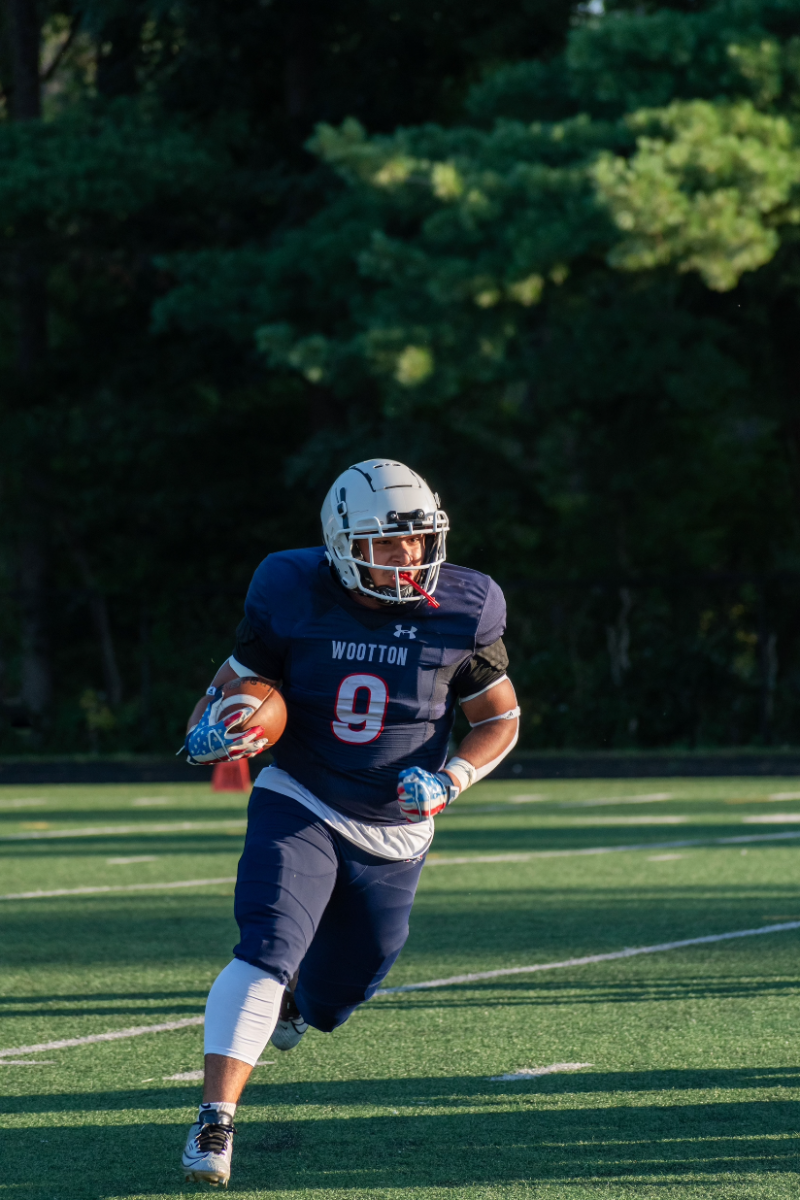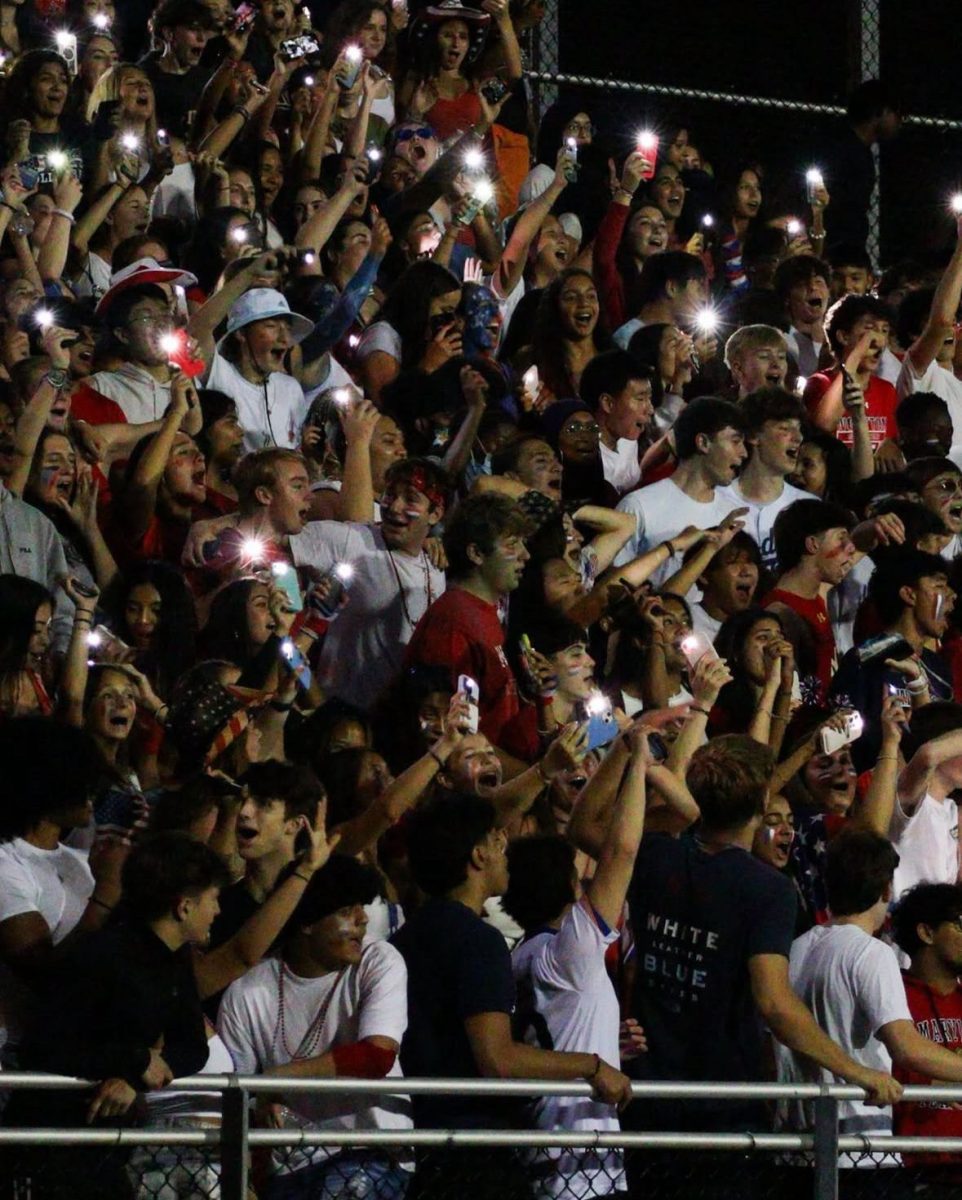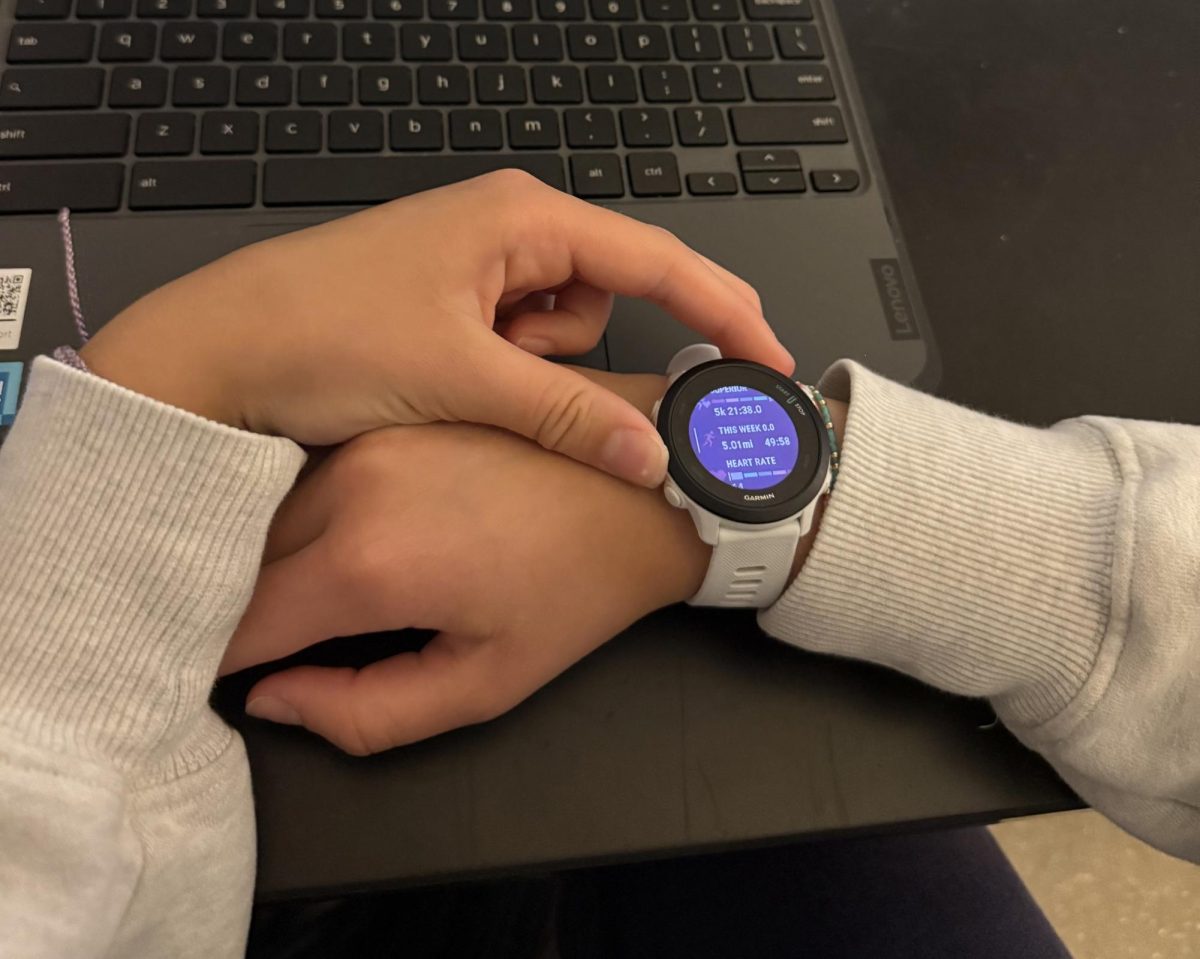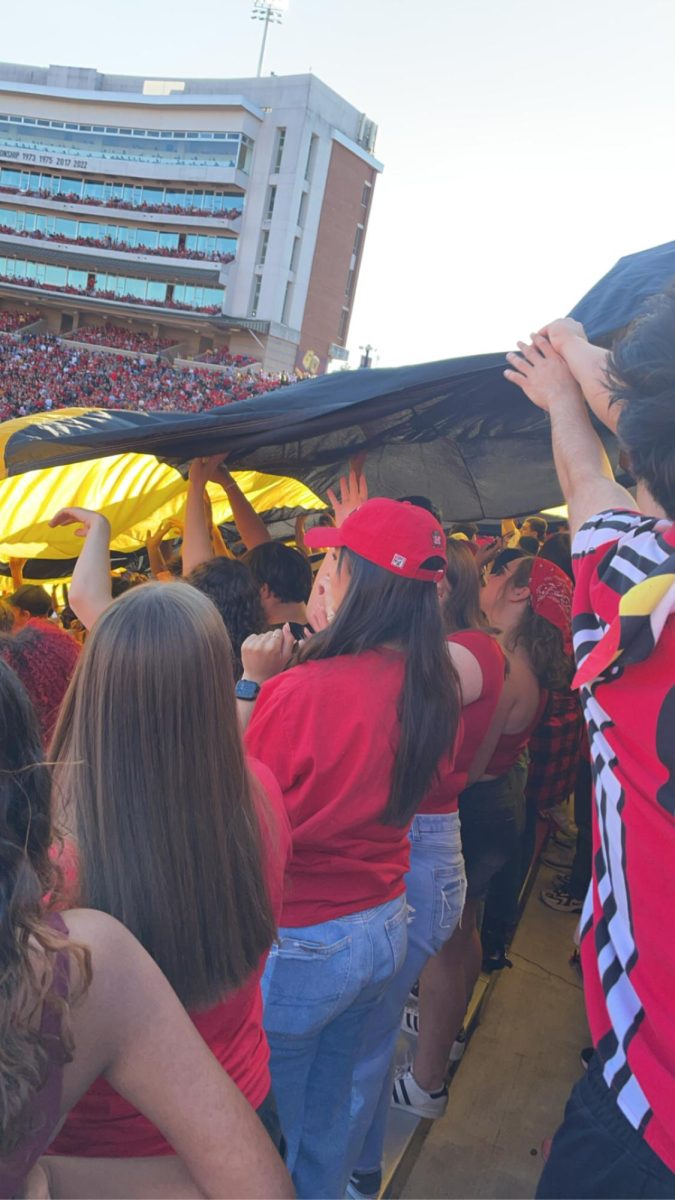Senior year: The time to enjoy the “lasts” of high school. Having fun with your friends, applying to college and going to football games are all a part of the well-known senior-year lifestyle. If you play a sport, you are most likely getting ready to try out for the team for the last time ever. However, some seniors don’t get the opportunity to actually participate on the team.
As athletes go through the grueling process of tryouts, coaches judge them on technique, execution, sportsmanship and performance. When the end of the last day of tryouts arrives, there is a cloud of worry surrounding the athletes, nervous if they made the team. For some seniors who were previously on the team, they could be nervous to see if they were chosen as captains. When the list, email or numbers get released, and a senior is not chosen, difficult emotions arise: anger, hurt, sadness. This senior, who spent their previous years on the team, feels as if their senior year is ruined.
The ongoing debate of seniors not making a team they were previously on has compelling evidence from each side that could influence your stance on the topic.
Every year students must try out for the sport, regardless of prior experience or positions on the team. With this rule set in place, there is room to either cut or accept an athlete from any grade level. Different schools around the county have contrasting policies and difficulty levels for teams. However, the one main similarity between athletic programs is the belief that every student should be given similar chances to make a team regardless of grade. “Giving each student equal opportunity to make a team goes along with the MCPS RAISE core values. Nothing is a given for returning players including seniors. They must go through the tryout process and make the cut in order to be chosen for the team,” Poolesville athletic specialist Regina Grubb said.
Although uncommon, seniors getting cut from sports teams could happen in any team. Currently, at this school, coaches fill out forms with requirements for each athlete who tries out. If a senior does not fill or meet the criteria, the coach will have a conversation with the athlete, despite the difficult scenario. It is up to the coach to attempt to figure out how to handle this situation, and in years past, some athletes have been given little to no explanation for their being cut despite their years of experience on the team.
Policies differ at other schools, however. Down the road at Churchill, while there is not an official process in place for removing a senior, athletic specialist Jesse Smith believes that it is a situation to be handled more sensitively, which includes a discussion with coaches before the action is taken in removing a senior athlete, and how to handle it. “We always want to be sensitive to our student-athletes, especially those that have been on our teams in the past. Once a direction is decided on that student athlete’s future with the team, the coach will discuss this with them and why they came to this decision. I think it is extremely important to be upfront and open when cutting student-athletes regardless of their grades and it is required here that our coaches share this with those trying out,” Smith said.
At Springbrook, athletic specialist Dan Feher accommodates senior athletes as best as he can, despite low numbers of cuts, by working with the coach and the athlete to ensure that they can participate in a sport. “If an athlete who is a senior that has been in the program is in jeopardy of being cut from the team, the coach would reach out to me during the tryout period to alert me. At that point, we would communicate throughout the process and work through the best situation possible. This does not happen frequently at our school (I can only think of one situation in my nine years here), but it could happen. We don’t make cuts for many of our sports, and as long as we have enough uniforms to accommodate the need, we will do that. I have seen a few seniors who become ineligible for their senior season, which we try to keep ahead of with our academic program for athletes, but it has happened,” Feher said.
With the revolving door that is high school athletics, changes in rosters are frequent, with up-and-coming freshmen, or students who have continued to work hard in the off-season. As teams begin to change, there is also the opportunity to have a new start and have a winning season. “A senior has to play a varsity sport, and our varsity teams are competitive. The ultimate goal is yes, to have fun, yes, to be a part of a team, but we are also trying to win. So, it makes no sense sometimes to keep a senior that isn’t going to play over somebody who is younger that helps the team and helps the program,” athletic director Alton Lightsey said.
Despite the desire to win, previously being on the team affects the athlete’s relationship with the team coach. Whether positive or negative, the athlete’s experience on the team affects the coach’s perspective, possibly changing the outcome of the next year’s tryout. Feher shares that coaches at Springbrook have the requirement to include information that they may have previously experienced with the athlete throughout their tryout process. Prior actions, skills, and behavior of an athlete could help make the difficult decision of whether or not an athlete should continue to be a part of the team. “Coaching sports, like teaching, is predicated on the capacity to build strong relationships founded on trust. If the coach is returning and the athlete is returning, there is inherently a stronger bond there than with a player who hasn’t played on the team before, in most cases. When you know more about a person, it allows room for adaptability and understanding when you recognize a ‘bad day’ happening. The relationship permits more latitude on the coach’s part,” Feher said.
In agreement with Feher, there is a different level in the relationship between a previous athlete and coach, according to Lightsey. “The difference between a coach cutting a first-year senior and someone who was on the team in the past is that you most likely have a relationship with the one who has played the sport before. That is a much more difficult decision to make as a coach. A first-year senior trying out for the team who has never tried out before, you don’t already have a relationship with that athlete, and although it is still a difficult conversation, it’s less difficult,” Lightsey said.
While previous experience with a coach could have a good outcome, there are also instances where those who have previously been on the team do not have a good relationship with the coach. With a bad relationship between an athlete and coach, there could be bias with the decision to let the athlete on the team. “If the relationship is not a good one, then there is a reason for that, and oftentimes that could be a lack of coming to practice, a lack of trying hard or work ethic, lack of being a good teammate. Those things do matter, and a lot of our coaches are looking at the body language of kids, when things don’t go well, because in sports things often don’t go well, and if your body language is bad, it isn’t a great sign. You could have a really talented kid who is all about him or herself, and it ruins the team chemistry, and it’s not worth the headache,” Lightsey said.
Tryouts for each sport differ greatly, with judged sports getting the opportunity to bring someone in to judge who should be on the team based on a set of criteria. “The only time we bring in outside people is with cheer and poms. For some of the teams, like boys’ lacrosse, there are several coaches, so there are several coaches looking at the players, so it is different in that the coaches make the decisions for those sports, and for poms and cheer, the coach is not necessarily involved in the decision. I think both ways are valid; with poms and cheer you have to be able to do skills, and there are certain people who can analyze these skills. With lacrosse, baseball or softball someone could come in, and it’s a bad day for the kid, so there are definitely good sides and bad sides to bringing someone in to look at tryouts,” Lightsey said.
Despite the desire to allow seniors to enjoy their senior year, athletic directors believe that there is nothing promised when it comes to scores during tryouts. Every athlete must work equally as hard in order to make a varsity team. Grubb, Feher and Lightsey are in agreement with Smith. “Just as in life, there are no guarantees in sports. Each year is a new year and there will always be someone new coming in trying to take a spot from someone else. Sports is all about competition from the time you step out there to try out to the time you compete in a contest. There is no given outcome for those things and for a senior to expect this is naive, to say the least. Seniors should always be expected to earn a spot just like everyone else trying out,” Smith said.
With coach’s biases, competitiveness and policies, there is strong information presented for both sides of the debate on seniors getting cut from sports teams regardless of prior experience on the team. As an athlete, being cut from a team is one of the hardest things to go through, and in your senior year nonetheless. While not an easy decision to make for a coach, it is important that the coach is open and honest with the athlete, and provides evidence of what could have been done differently, or attempts to accommodate the athlete in the best way possible.









ilholm • Jan 22, 2024 at 8:34 am
cutting seniors is not ethical!
arjun • Jan 22, 2024 at 8:32 am
great read! 10/10 ellie!